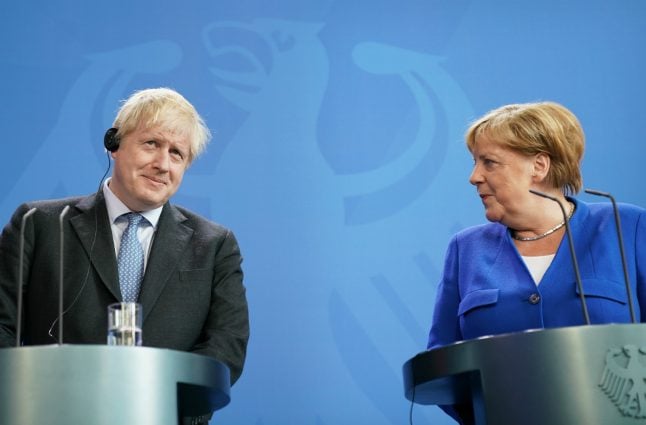While an agreement is possible, German EU ambassador Michael Clauss insists London will have to show “a more realistic approach” to reach one by the end of the year, he said on Thursday.
It was not possible for Britain to have “full sovereignty and at the same time full access to the EU's internal market,” Clauss told a panel at the European Policy Centre think tank.
The EU and Britain are holding a fourth round of virtual talks on their future relations following the UK's split from the bloc after 40 years of membership.
Britain left the European Union on January 31st and is now in a transition period until the end of the year during which it enjoys the benefits of EU membership.
READ ALSO: How Brexit has pushed thousands of Brits to get German citizenship
A meeting is planned for later in June between Prime Minister Boris Johnson, EU Council President Charles Michel and Commission President Ursula von der Leyen to take stock of the situation.
Clauss said that the EU was working on the assumption that Britain would “not demand an extension” of the transition period beyond the end of the year.
Both sides are working towards establishing zero-tariff trade ties, but neither side have budged from their red lines.
Turning to other subjects, Clauss said a deal to establish a €750 billion ($840 billion) recovery fund for Europe was possible this summer, but would be difficult.
Germany takes over the EU's six-month rotating presidency on July 1st and will be key to finding consensus among the 27 member states to approve the rescue plan.
EU leaders are to hold a virtual meeting on June 19th to advance on the matter, but a European official on Wednesday said a deal would require a face-to-face summit, hopefully in July.
Negotiations towards a recovery fund oppose so-called “frugal” countries such as Austria and the Netherlands against France, Spain and Italy that want swift action to lift Europe's economy.
If passed, the proposal would be the biggest EU stimulus package in history.



 Please whitelist us to continue reading.
Please whitelist us to continue reading.
Member comments